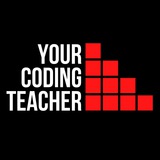"Great things are not done by impulse, but by a series of small things brought together." - Vincent van Gogh
JavaScript has a single type for numbers, represented as 64-bit floating point Integers are also represented using this same type
Without putting the things you read into action in a real project, you will forget soon.
Storage Transfer Service (STS), a service that imports data to a GCS bucket from: - An AWS S3 bucket - A resource that can be accessed through HTTP(S) - Another GCS bucket For huge amounts of data consider Data Transfer Appliance: ship your data to a Google facility.
Binary search trees (height h, N nodes): - Insert and contains operations are O(h) - Elements in order: find min/max in O(h) - Efficient range queries Sorted inputs make them look like a linked list o(h) -> O(N) Balanced BST: AVL, red-black,... o(h) -> log(N)
Labels are key-value pairs you can use to organize your resources in GCP. Once you attach a label to a resource (for instance, to a virtual machine), you can filter based on that label. This is useful also to break down your bills by labels.
When fixing a bug, the most important thing is a reliable procedure to reproduce the problem. Try to trigget the issue manually. Then write a test that fails. Only then, start changing your code.
"The only way to learn a new programming language is by writing programs in it." - Dennis Ritchie
In a derived class, how do you call the parent constructor (in Java)? Using the "super" function: this.super(...) Interestingly, in Python the function is also called super
I recently stumbled upon this open-source scripting language: @esProc_SPL While SQL is based on relational algebra, SPL is based on discrete datasets, which results in more natural queries that can run faster. Checkout the link below👇
Do not considered thar you've learned a new concept: - Language feature - Algorithm - Data structure - Design pattern - DB technology - Etc until you are able to explain it with your own words.
2 common bugs: 1. Uninitialized variables. Ex: int min(int *A, int n) { int sol; for (int i=0; i<n; i++) if (A[i] < sol) sol = A[i]; return sol; } 2. Assignment vs comparison if (x = 5) x== 7; Better: if(5 = x) -> Compiler would complain
Resume tips - Less is more. 2 pages max - Avoid exaggerating. You can get grilled on anything you put on your resume - Focus on what you did. Not your team or your company - Implemented, coded, launched, led, designed >> Helped, contributed, participated
Simple code to solve a complex problem >>> Complex code to solve a simple problem Focus on the impact of your work, not to "look smart" .
Language agnostic coding tips: - Avoid "magic constants" - Avoid uninitialized variables - Make name lenghts proportional to their scope - Name an object to reflect its meaning - Postpone variable declaration as much as you can
"I have always found that plans are useless, but planning is indispensable." - Dwight D. Eisenhower
Design patterns in 1 tweet State: Change the behaviour of an object when its state changes Ex: fan controller. When changing state from level 1 to 2, it increases the rotation speed.
2 Different approaches for DB storage engines: - Log based: writes are appended to a log file. Ex: Cassandra, HBase - In place updates. Ex: B-trees (used both in relational and NoSQL dbs)
